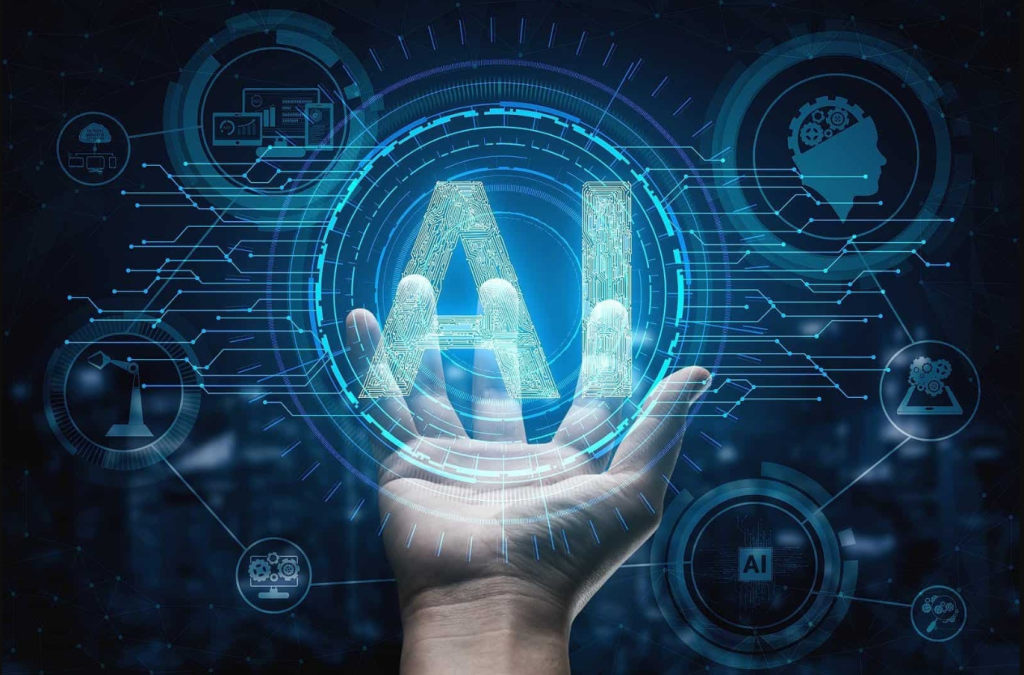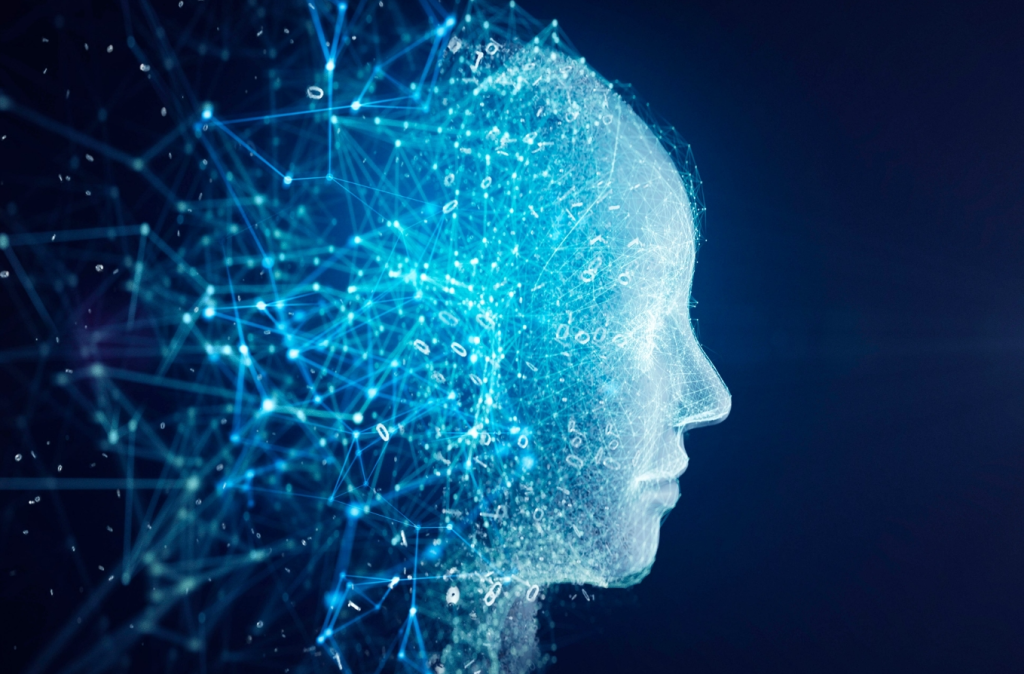Key Points:
- Being a lifelong learner is not about filling a bucket of water, but lighting a fire.
- Instead of practicing what AI will increasingly perform – expanding learners’ potential by focusing on agency and intellectual capacity – educators should shift their focus to empowering unique human capabilities.

At first, this is disconcerting. We could almost hear the sound of keyboard tapping as carefully crafted sentences appeared on the screen. But no one was typing; the words just appeared. And very fast. No one can write that fast.
For us two educators, nearly 60 years apart, it was a marvel to see what generative artificial intelligence (AI) could do. One of us, Professor Edmund W. Gordon, was born in 1921 and has held many roles in a career spanning more than 80 years: from psychologist and minister to civil rights leader and civil servant. The other, Eric Tucker, born in 1980, is a parent of school-age children, a special educator, a former inspector and a technologist. Despite our differing perspectives, the new reality of AI got us thinking:What does it mean to be educated if AI can create things that take years or even decades for the average student to master?
We’re not the only ones asking these questions on the one-year anniversary of the launch of ChatGPT, a nonprofit AI research and deployment store and publisher of ChatGPT, whose mission is “to ensure that AI-often smarter than human beings-is used for the benefit of all. OpenAI’s Tumt has created an Overton-like window for people to think about what the broad benefits of AI in education might look like.
The Biden administration’s executive orders and reports have emphasized how educators and schools can respond to the rapid expansion of AI, arguably one of the most important changes since the War on Poverty, of which Dr. Gordon was a key architect during the Johnson administration. “Dr. Gordon was a key architect of the War on Poverty during the Johnson Administration.
Dr. Gordon’s scholarship examines what it means to be human and how technology has facilitated learning and development throughout his career, and he has contributed to a number of presidential administrations, including JFK’s desegregation efforts, Johnson’s creation of Project Lead the Way, and Obama’s Communities of Promise. “. To paraphrase Gordon: Lifelong learners don’t fill a bucket of water, they light a fire.
In the wake of ChatGPT, Claude, and Bard’s public appearances, it’s clear that AI’s influence is here to stay. So while it’s necessary to understand the risks of AI – including the potential for AI to disrupt human work, transfer bias, repeat errors, disrupt privacy, and cause unintended consequences – it’s also necessary to understand the potential for AI to enhance human potential and the potential to inform the educational process.
As educators, we are interested in how these technologies can help students learn in a way that honors learner variability. How can educators and caregivers redirect our work with these tools to ensure that all children thrive in an uncertain future? While the technology is different, educators have considered these kinds of questions before. We’ve gone from encyclopedias to Google workspaces, from one-room schoolhouses to Zoom workshops. As the storm of change driven by AI makes landfall, we think educators should see the emergence of AI as an opportunity to assess what will matter most to learners in the coming period.
What it means to be educated for the future
In the face of emerging technological advances, Carl Bereiter and Marlene Scardamalia (2013) argue that human capabilities matter in an uncertain world. They improve their ability to create knowledge, find real-world applications for abstract concepts, understand and operate complex systems, stay focused in the midst of multiple distractions, and participate in collective work.
Similarly, the XQ Institute has identified research-supported goals, or learner outcomes, that students must develop to be successful in the future. These include agility in the way they think and understand the world, building collaborative skills such as self-awareness and social awareness, developing curiosity, and becoming lifelong learners.
Research shows that too many U.S. high school graduates need remedial courses in college and are not equipped with the skills that employers increasingly value. xQ is working to change this by redesigning the high school experience. xQ’s Learner Outcomes help educators determine how to equip their students with the deep learning, knowledge, and skills necessary for them to succeed in college, careers, and any other future challenges and opportunities. Among these outcomes are many competencies designed to develop skills such as critical thinking, social awareness, and self-management.
For example, when Eric Tucker co-founded the Edmund W. Gordon Brooklyn Laboratory High School in 2017, the curriculum emphasized the practice and presentation of applied research. In each year of high school, students complete a year-long interdisciplinary seminar program sponsored by the College Board, investigating pressing issues of societal concern in a variety of disciplinary contexts, writing research-based papers, and designing and delivering presentations in teams and individually. Students complete research projects on topics of their choosing-from environmental justice to gun control, affirmative action, and economic mobility-collecting and integrating information from a variety of sources, viewing an issue from multiple perspectives, and formulating arguments based on evidence.
Such an ability is a human one, one that cannot be fully replicated by current technology. In the face of AI, we as educators must help all learners develop these abilities. We must shift the focus of education to human potential, developing the breadth and depth of our students’ knowledge, as well as their ability to navigate different ideas, different people, and different cultures. This is not a job that can be done by robots or algorithms.

Focusing on Human Potential Education
Rather than practicing the tasks that AI will increasingly perform (such as writing the first draft of a paper outline, generating initial lines of code, or preparing a preliminary series of statistical analysis visualizations), educators should turn our attention to enhancing the unique capabilities of human beings – whether through technological advances or otherwise – to amplify human potential. Schools should adopt generative AI and similar tools to increase the amount of time spent honing abilities such as constructing meaningful questions, placing arguments in context, and evaluating multiple viewpoints.
Dr. Gordon’s scholarship explores two competencies that are especially important for educators:
Human agency. Agency is the ability to recognize and act in the best interests of oneself and others. Another way of thinking about it is the ability to adhere to a sense of efficacy and formulate values.Ana Mari Cauce and Gordon (2013) define human agency as the tendency to take action and be goal-driven.
Human agency is important because it enables people to act for the collective good. As Holocaust survivor and psychologist Viktor Frankl brilliantly describes in his 1954 book Man’s Search for Meaning, a sense of fulfillment ensues, “like an unexpected side effect of one’s dedication to a cause greater than oneself.” In the age of artificial intelligence, we can expand agency by using tools that enhance our ability to take meaningful action in the world around us.
This is especially true in the face of complex existential threats like climate change. Educators focused on student agency can work with students to investigate how AI can be used to address environmental challenges. Students can explore how AI can support activities that reduce energy consumption and greenhouse gas emissions, monitor deforestation, or track carbon removal. For example, the IETA guide suggests that students research and identify local environmental or sustainability challenges, define the problem in detail, explore how AI solutions fit into broader solutions, and create and test working prototypes. In this example, an agent learner could practice setting authentic goals and using AI to help solve real-world problems.
Intelligence, Ability, and Character. Dr. Gordon coined the term “intellectual competence” (2013) to describe the ability to use knowledge, skills, and values to engage in and solve new problems. He uses the term ‘intellectual character’ to reflect that what we want learners to know and be able to do must contribute to the realization of what we want learners to be and become. Intellectual character means being a good citizen and using imagination creatively to meet challenges and improve the environment.
The ability to understand and solve these problems separates human beings from their ever-evolving technological adversaries. For example, Chris Trier from Crookston High School emphasized that in schools around the world, students work together to tackle environmental challenges large and small. Educators can improve intellectual capacity by engaging students in using AI tools to address sustainability challenges. Platforms such as Wildlife. ai, Restor and Zooniverse present how AI can help people understand environmental challenges such as climate change, protection of marine ecosystems and wildlife, water and plant conservation or air quality. Intelligent characterization guides learners towards a sense of urgency, values and commitment to environmental justice.
Educators and students across the country are exploring approaches to the future of learning that resonate with Gordon’s concepts of agency and intellectual capacity. Notably, XQ schools such as Latitude High School in Oakland, Iowa BIG in Cedar Rapids, and Purdue Polytechnic High School in Indiana demonstrate how meaningful programs where students have a voice in their learning and collaborate with community partners are develop these competencies.
As technological breakthroughs, analytics, and artificial intelligence (AI) rapidly redefine what it means to be educated, they correspondingly change the way we measure and guide learning and development. At the Gordon Commission Research Group, we believe it is time to accelerate innovation in measurement and assessment systems to maximize learning and flourishing for every learner. We are working to examine the best assessment, data, and AI practices, technologies, and policies; consider the design needs and opportunities for future education systems; and make recommendations to better meet the needs of students, families, educators, and society.
The emergence of generative AI marks a dramatic change in the meaning of education. Our challenge to other educators is to join us in rethinking what it means to learn and develop with AI-powered tools. Our 100+ years of experience as parents, educators, and applied researchers gives us confidence. We can embrace agency, encourage sensible dispositions, and cultivate the capacities that shape us as individuals and help us create a healthy, just, and sustainable world.
